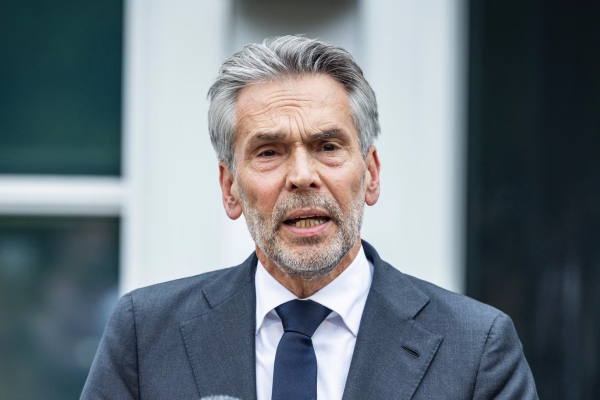 THE HAGUE:--- The political landscape in the Netherlands has been shaken to its core as Prime Minister Dick Schoof officially announced his resignation following the dramatic collapse of his coalition government. The trigger for this upheaval was far-right leader Geert Wilders and his Party for Freedom (PVV) withdrawing from the coalition. Wilders cited his disappointment over the coalition partners’ refusal to adopt his controversial proposals on asylum and immigration.
THE HAGUE:--- The political landscape in the Netherlands has been shaken to its core as Prime Minister Dick Schoof officially announced his resignation following the dramatic collapse of his coalition government. The trigger for this upheaval was far-right leader Geert Wilders and his Party for Freedom (PVV) withdrawing from the coalition. Wilders cited his disappointment over the coalition partners’ refusal to adopt his controversial proposals on asylum and immigration.
This unexpected move has left the Dutch government in a state of disarray, with snap elections now anticipated in the coming months. However, these elections are unlikely to be held before October, leaving the Netherlands with a caretaker government tasked with managing the country's affairs during a period of significant political and economic uncertainty.
The Reasons Behind the Collapse
The downfall of Schoof's government stems from escalating tensions within the coalition. Wilders demanded immediate and radical policies, such as a complete halt to asylum migration, the closure of asylum shelters, and the repatriation of Syrian refugees. These measures failed to gain traction among his coalition partners, forcing a political standoff.
Ultimately, Wilders took to social media, posting on X (formerly Twitter): “No signature under our asylum plans. The PVV leaves the coalition.” True to his statement, ministers from Wilders’ PVV party will exit the cabinet, effectively dismantling the current administration.
The remaining coalition parties could attempt to govern as a minority; however, analysts believe new elections are the more likely outcome.
Reactions from Coalition Partners
The decision by Wilders and the PVV to withdraw was met with disbelief and outrage from his coalition counterparts. Dilan Yesilgöz, leader of the conservative VVD party, expressed her frustration, saying, “This is making us look like a fool. There is a war on our continent. Instead of meeting the challenge, Wilders is showing he is not willing to take responsibility.”
Similarly, Nicolien van Vroonhoven, leader of the centrist NSC party, dubbed the decision “irresponsible,” emphasizing the inopportune timing of creating political instability during such critical geopolitical moments.
Wilders, though not a minister or head of the government himself, had managed to join the coalition only after abandoning his earlier prime ministerial ambitions. His controversial track record includes a 2014 discrimination conviction for remarks about Moroccans, marking him as a polarizing figure in Dutch politics.
Implications for NATO and the Eurozone
The collapse of Prime Minister Schoof's government will ripple far beyond Dutch borders. A caretaker government will be in charge when the Netherlands hosts NATO leaders later this month in The Hague, potentially jeopardizing the country’s ability to drive critical defense discussions. Notably, this includes a decision on a historic increase in defense spending, essential to meeting NATO's enhanced targets amidst ongoing threats in Europe and beyond.
Domestically, the Netherlands, as the Eurozone's fifth-largest economy, faces mounting uncertainty while waiting for a newly elected administration. A prolonged period of political paralysis could delay key policy initiatives, impacting the broader European Union.
The Rise of Hard-Right Sentiment in Europe
The Dutch government’s collapse reflects the growing hard-right sentiment across Europe, fueled by issues like migration and rising living costs. Such political divides risk undermining European unity at a time when cohesive strategies are essential for handling challenges like the war in Ukraine, relations with the United States, and economic stability.
Geert Wilders' actions highlight the fragility of coalition governments, especially when ideological divides widen. Whether this signals a shift to a more polarized political era or a recalibration of Dutch leadership remains to be seen. For now, the Netherlands faces months of uncertainty, the consequences of which will be closely watched across Europe and around the world.











